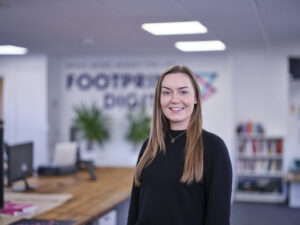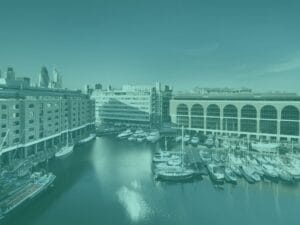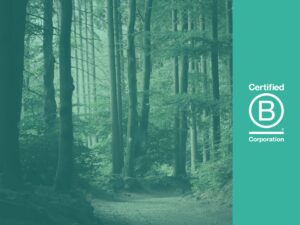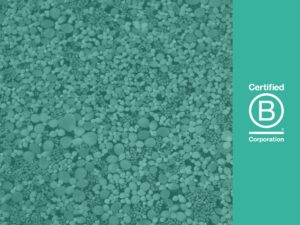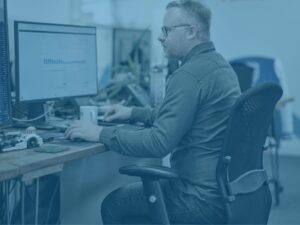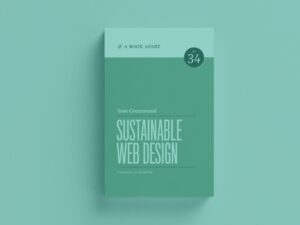
Over the last few months we’ve been focusing on digital sustainability, and how businesses (and individuals) can do more to help protect our environment. We sat down with digital sustainability expert and co-founder of Wholegrain Digital, Vineeta Greenwood, to find out more about how their business incorporates green policies and what other businesses can do to improve.
Q – Please tell us a little about Wholegrain Digital
A – I’m the co-founder of Wholegrain Digital, a web design agency that specialises in low-carbon websites and we create them for positive organisations. Wholegrain Digital has been around since 2007, and other than specialising in WordPress, we also have a fantastic team that specialises in digital experiences, UX and strategy.
Q – Why is sustainability important to you personally?
A – I feel sustainability is the fundamental requirement to everything good, and for everything’s survival. Without protecting the natural environment there is nothing left to enjoy. Nothing left to live, or thrive, or survive – so. Sustainability is the only way forward.
Q – What has your company’s sustainability journey been so far?
A – It’s been really interesting. We started off with the intention of making it ‘sustainability first’. Lots of people talk about revenue, putting purpose before profit. We’ve done that and we’ve always stuck by it.
In our operations we try to have a low impact business model, so we work in a hybrid working environment from home and through shared office space. Our office space uses renewable energy, measures water use, and finds every possible way of reducing their carbon emissions and we give our team an extra day of holiday for switching to renewable energy at home.
We also have a no-fly policy, and we have a vegetarian food policy at work. We also have a procurement policy that specifies the use of refurbished IT equipment and eco-friendly products all across the board.
At work, we have a screening policy for the types of projects we take on and the types of clients we take on, and we use our talents and skills to work on projects that are actually going to have a positive impact on the world and not on things that are detrimental to society in any way.
Directly, in terms of the work that we do, we are world leaders in sustainable web design which is the practice of designing websites to use the minimum amount of energy and produce the lowest amount of carbon emissions possible. To measure that, we developed the world’s first carbon calculator which is also about knowledge sharing and getting other people to reduce their impact of digital technology on the environment.
Q – How can businesses get their employees/customers more excited about sustainability?
A – Each organisation has a unique selling point, and a mission and a purpose that they stand for, and they have engaged their employees with that purpose. Tying it back to sustainability is very easy. Most of the young people, in fact all ages, are excited about making the world better. So, ask the team what they think the business needs to do.
Great ideas come from people, rather than top down. So, for example, with our vegetarian food policy we asked our team, and to be honest more than 50% of our team eats meat and the rest are not necessarily vegetarian or vegan, they’re quite flexitarian I would say, but they voted for the vegetarian policy.
They didn’t say the food had to be vegan or meat based, they actually said vegetarian, they specifically asked for it. Asking the team what they want actually means there is an alignment of commitment and it’s much easier to follow through.
So, there’s lots of initiatives that a business can do, such as no-fly, asking the team to switch to renewable energy, bank ethically, there’s lots of things that we can do but each business has to decide which buttons they are going to push based on what the team is willing to do.
Q – What are your tips for a company who wants to reduce their carbon footprint but doesn’t know where to start?
A – Anything you do – look for how you could do less of it. Use less. So, if you are planning to buy phone devices, go to somewhere like Backmarket or eBay to find refurbished equipment. It’s about finding ways to use less of the equipment or less of the products that you are bringing into your business, or finding a way to do completely without. Doing without is actually possible, it’s just about finding ways of making it work.
Q – How important is innovation for sustainability?
A – Innovation is extremely important for sustainability, because we have forgotten our roots and where we come from, which was very sustainable, and the ‘sustainable’ word is now a fad so actually, being innovative is necessary because society has gone in such a way that you have to find ways of making sustainability a norm, which is a real shame but needs to be done. That’s why innovation is necessary in that field.
Q – Have you noticed any client trends when it comes to sustainability?
A – Yes, more clients now ask for sites that produce low carbon emissions. Five years ago nobody was talking about it. It’s a project that we started and now literally hundreds of web developers are creating sustainable websites and it’s not our USP and I’m proud of it because it’s something that other people are taking on board and we want hundreds of businesses to adopt this and that’s exactly what’s happening.
In terms of how innovation can be brought into other businesses, it’s about finding out what your unique talent in the business is, whether that be people, whether that be knowledge, whether that be passion or alignment of something that you’re looking for together, that’s the key here.
Q – In your opinion, what is the one change we should all make today to help reduce climate change?
A – There’s a few! But if it comes down to one thing that we have to do to reduce climate change, it is minimalism. Find a way to use less, and that then translates into almost everything. What is the basic form we can go down to, whether that be for food, travel, the use of technology. Minimalism is the key.
You can find out more about Wholegrain Digital’s sustainable web design practices in their book, published by A Book Apart.
Find out about our Digital Carbon Footprint Audit, inspired by working with Wholegrain Digital.
